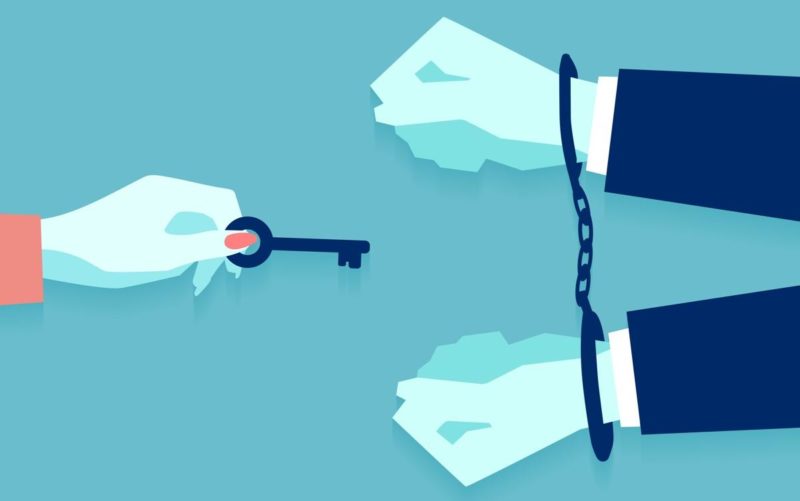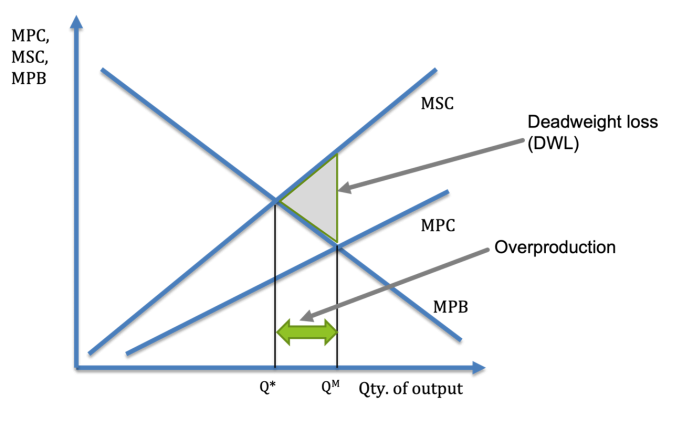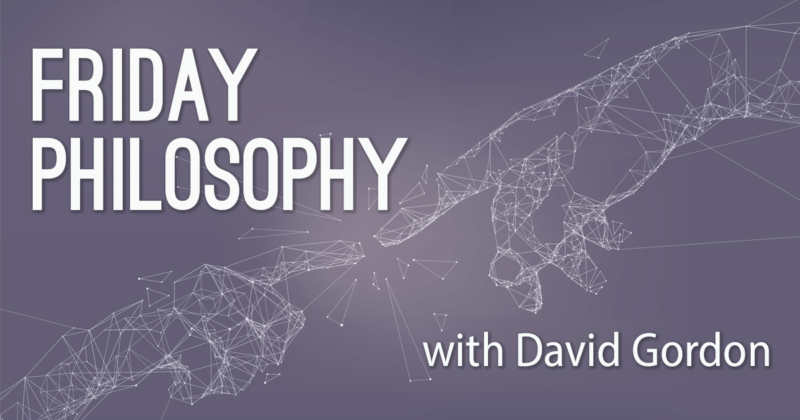Category Archive: 6b.) Mises.org
Praxeology
Praxeology is the method of economics.
Download the slides from this lecture at Mises.org/MU23_PPT_05.
Recorded at the Mises Institute in Auburn, Alabama, on 24 July 2023.
Praxeology | David Gordon
Video of Praxeology | David Gordon
Read More »
Read More »
FedNow Isn’t a CBDC, but It Is Dangerous
Starting in July, the Federal Reserve will be rolling out a new payment service dubbed “FedNow.” Among many on the dissident side of politics, there is a growing worry that this new service may be a trojan horse for a central bank digital currency (CBDC).
The concern is a valid one. A CBDC, depending on how it is implemented, could eliminate the privacy allowed by a cash system, allow the freezing of accounts with greater ease, and open the door to...
Read More »
Read More »
Subjective Value and Market Prices
This concept of economic calculation is really the foundation of all economic theory, and price theory is the cornerstone of economic calculation.
Download lectures slides at Mises.org/MU23_PPT_04.
Recorded at the Mises Institute in Auburn, Alabama, on 24 July 2022.
Read More »
Read More »
The Birth of the Austrian School
Menger discovered much more than the principle of marginal utility—he created an entire system of economics based on subjective value and individual choice.
Download lecture slides at Mises.org/MU23_PPT_03.
Recorded at the Mises Institute in Auburn, Alabama, on 24 July 2022.
The Birth of the Austrian School | Joseph T. Salerno
Video of The Birth of the Austrian School | Joseph T. Salerno
Read More »
Read More »
Can Fractional Reserve Banking Survive the Twenty-First Century?
Caitlin Long tweeted over the July 4 weekend, “BIG NEWS for #fintech! A sixth US state—Idaho—is willing to charter uninsured, non-lending, 100% reserve banks that are eligible for Fed master accounts (the other states are CT, ME, NE, VT & WY). This trend could turn the ‘bank-as-a-service’ (#BaaS) model on its head!!!!!”
As Long explained to Ash Bennington on Real Vision, bankers are
playing this three-card monte game of, well, I’ll tell...
Read More »
Read More »
Reflections on Method: The Proper Study of Man
Includes an introduction by Joe Salerno. Recorded at the Mises Institute in Auburn, Alabama, on 23 July 2023.
[embedded content]
Read More »
Read More »
Welcome and Opening Remarks
Recorded at the Mises Institute in Auburn, Alabama, on 23 July 2023.
Welcome and Opening Remarks | Joseph T. Salerno
Video of Welcome and Opening Remarks | Joseph T. Salerno
Read More »
Read More »
Why “Classical” Liberals Want Decentralization
[This article is chapter 3 of Breaking Away: The Case for Secession, Radical Decentralization, and Smaller Polities. Now available at Amazon and in the Mises Store.]
In recent decades, many pundits, scholars, and intellectuals have assured us that advances in communications and transportation would eliminate the different political, economic, and cultural characteristics peculiar to residents of different regions within the United States. It is...
Read More »
Read More »
Explore the Minor Issues Archives
This week Mark invites you to explore the Minor Issues archives. We have produced about a half a year's worth of short audio commentaries about the economy, and we are grateful to our listeners for their feedback. Topics range from the price of toilet paper to macro-business cycle topics, but our specialty is highlighting issues that the mainstream media ignores or misrepresents as insignificant. Thank you for listening.
Be sure to...
Read More »
Read More »
Why Government Pollution Control Fails
In over twenty-five years of teaching undergraduate students, I have heard the same refrain countless times: free markets have many problems that government has to step in to solve. Indeed, students expect government to “step in” so much that markets occupy a peripheral role in their idealized economic system. Even students with an ideological predilection toward markets will be quick to argue that certain problems, such as pollution, require...
Read More »
Read More »
Modern Socialism Is Forced Socialization
My article “The Education of the Modern Socialist” deserves a follow-up. The first part showed that a change has occurred in the definition of “socialism”—a necessary change in view of the failures of this ideology during the last century. Socialism today is based on the ideology of “statism”—the conviction that the state must play a fundamental role in society. Ludwig von Mises’s wider definition of socialism as state intervention implies a modern...
Read More »
Read More »
How East Germany’s Stasi Perfected Mass Surveillance
The state has a monopoly on violence. However, abusive repression harms government credibility and alienates public support in the long run. A more subtle and effective way to exercise power is to surveil the population and to prevent open manifestations of discontent.
This article analyzes the case of the of the German Democratic Republic’s (DDR) Ministry for State Security (MfS), also known as the Stasi. The thesis is that an effective...
Read More »
Read More »
How the Fed Could Bring in a CBDC Through the Back Door
George Gammon, host of the popular Rebel Capitalist show, warns that the Fed won't have to force the public to adopt a central bank digital currency (CBDC). Instead, the public might clamor for it, being promised safe, high-interest checking accounts at the Fed, just like Jamie Dimon.
The Rebel Capitalist show: Mises.org/HAP405a
How the Fed Could Bring in a CBDC through the Back Door
Video of How the Fed Could...
Read More »
Read More »
Mises and Nationalism
Nationalism is a potent force in the modern world, and it is not surprising that some libertarians have been attracted to it. Indeed, in some circles the slogan “Blood and Soil” has come into to use to denote a people’s attachment to the land. It should be noted that although this slogan was used by the Nazis, especially by Walter Darré, it did not originate with them but was common among German nationalists such as Oswald Spengler. It would be...
Read More »
Read More »
The War in Ukraine Is Far From Over
Ryan McMaken and Zachary Yost look at the many factors behind Ukraine's failure to defeat Russia or move closer to NATO membership. Ukraine is sadly caught between a cynical NATO and a Russia that is in it for the long haul.
Be sure to follow War, Economy, and State at Mises.org/WES.
Read More »
Read More »
Want to Follow Your Dreams? The First Step Involves Hard Work
People are constantly told to follow their dreams, but doing so is futile without execution. Dreaming is a blueprint for future success; however, some people live in the dream instead of working to make it a reality. Ambition is insufficient to reap success, and many fail to realize their potential. Success is only actualized when you stop dreaming and start doing.
Some believe that reading motivational books will lead them to prosperity, yet...
Read More »
Read More »
Mises University Starts in Two Days. Will You Support Our Budding Scholars?
Only two days left until Mises University begins! Our students have completed their required readings and have already started discussing Misesian utilitarianism, Rothbardian natural law, and Hoppean argumentation ethics in the Mises University private group chat. We can already tell how enthusiastic and smart these students are!
We have students from forty-seven colleges and universities at this year's Mises University. Look and see if your alma...
Read More »
Read More »
Why Inflation and Economic Crises Aren’t Going Away
Mark Thornton joins Ryan and Tho on Radio Rothbard to take a closer look at the state of the US dollar and how price inflation and economic crises are likely to play out in the months and years ahead.
New Radio Rothbard mugs are now available at the Mises Store. Get yours at Mises.org/RothMug
PROMO CODE: RothPod for 20% off
Read More »
Read More »
The Dead End of Catholic Nationalism
[This article is adapted from a panel discussion on Christian Nationalism at Freedom Fest in Memphis on July 14, 2023. The other panelists were Norman Horn, Kerry Baldwin, and Alex Bernardo of the Libertarian Christian Institute. ]
The specter of Christian nationalism—variously defined—has become one of the current bogeymen to the Left. "Christian nationalism on the rise," reports National Public Radio, and The New Yorker asks "How...
Read More »
Read More »
Why Do We Act against Our Self-Interest?
Rational choice theory claims that people in the political realm act in their own self-interest. However, in today's political climate, many people act against their own interests to avoid being attacked by others.
Original Article: "Why Do We Act against Our Self-Interest?"
Read More »
Read More »




























